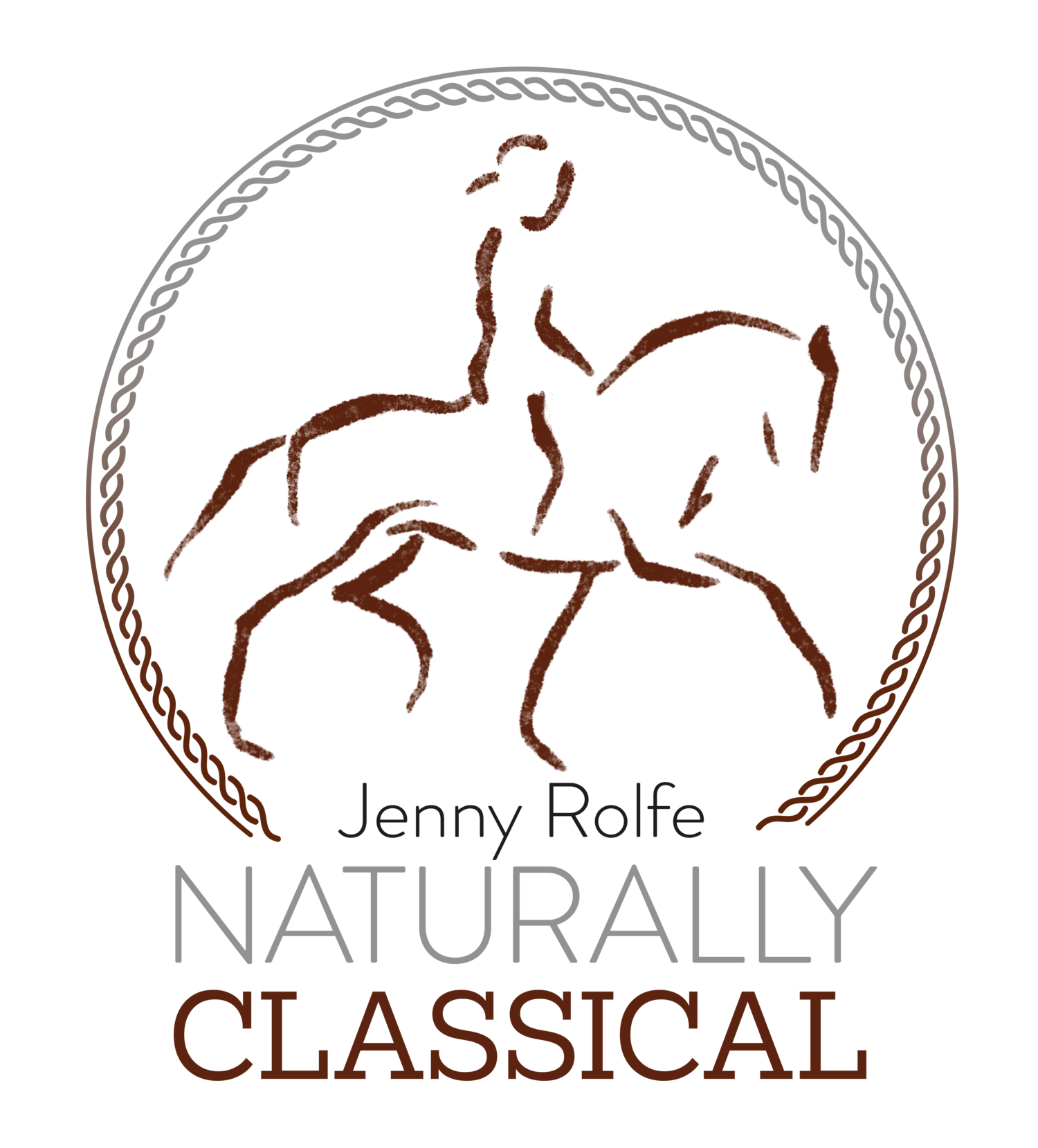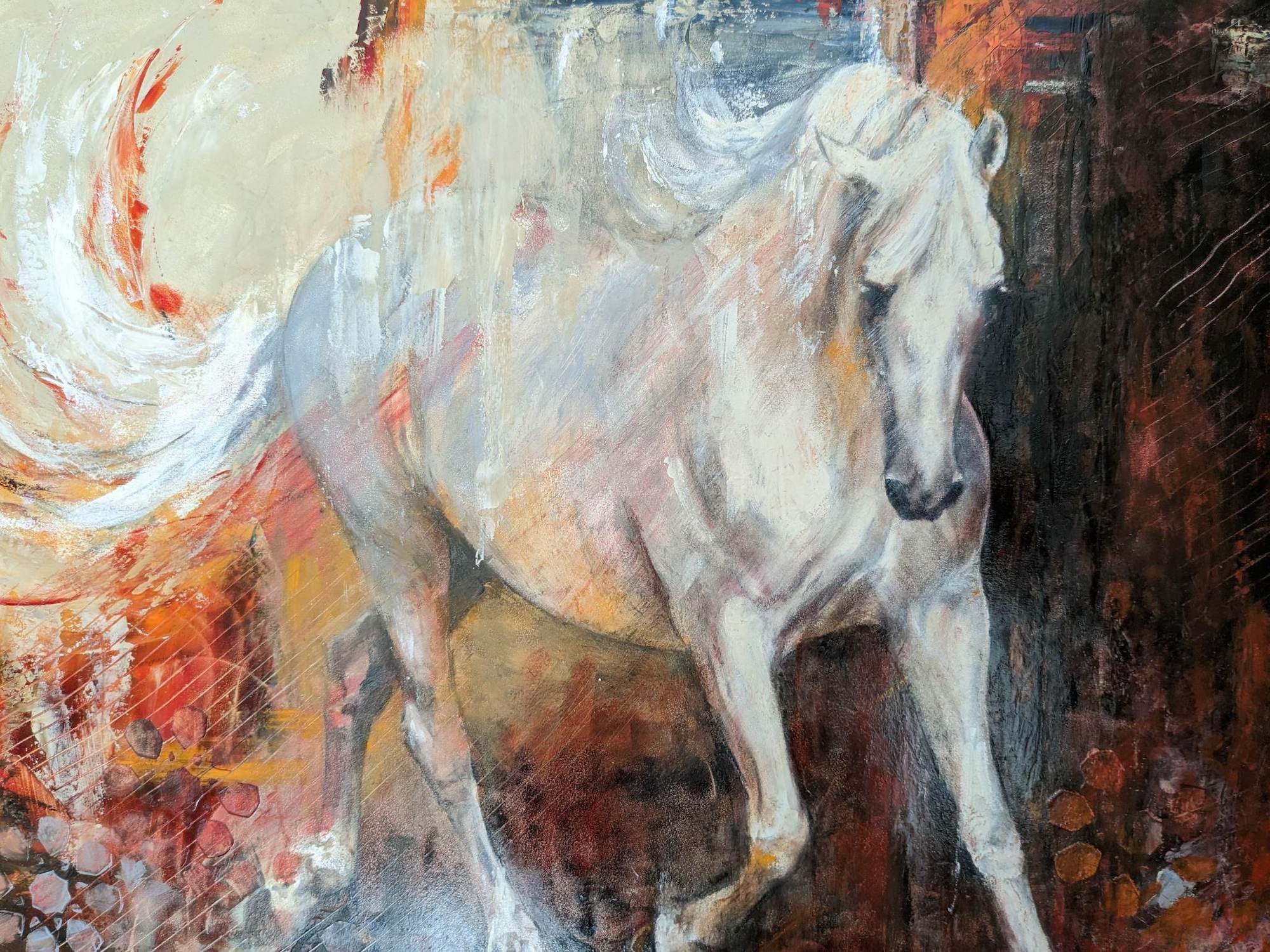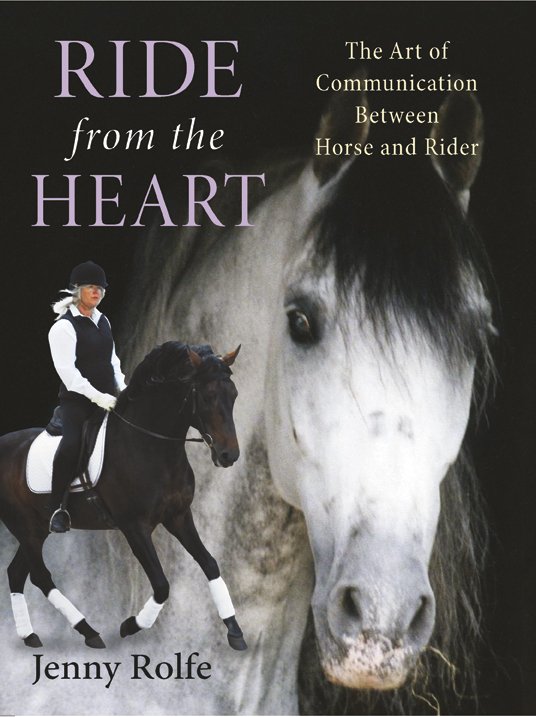Liberty work - the power to transform
Humans can forget how to listen to horses. Once in the saddle we are continually asking questions, whilst our horses are doing their best to respond. Repetition of pressure and expectations can put horses on auto pilot (even shut down), so they can really benefit from down time to relax and play with their rider and friend.
Liberty provides time for mutual listening and play. Time for us to reflect and observe. Time to paint our picture of colour as communication becomes art. The art of listening. The art of LOVE.
Training from the ground – a more natural approach
Last year I wrote a series of articles for Luso News which I' thought to share with you here. They offer a truly holistic approach, to help you build skills of liberty schooling, lungeing (no side reins) and working in hand (with or without tack).
So how do you view ground work? Is it a valuable part of a training programme? For instance, do you frequently begin by jumping in the saddle or would you consider lunging for a few minutes? Do you lunge in small circles only, maybe just to loosen up or de-fizz your horse?
I will explain how ground work can become a fundamental part of a training programme.
Horse language – the silent, yet potent language of breath energy
I am often asked, “How do I begin to teach a new horse to respond to my breathing and soft gentle changes in body balance?”
So let’s go back to a young black Fell stallion many years ago. He was a cheeky monkey, full of sass! We began his early training from the ground at liberty and on the lunge.
I would connect and ask him to respond to my breath energy in walk, trot and canter. I used the deeper exhale to ask for more energy and the deeper inward breath to reduce the energy in a pace or into a downward transition.
Using the breath in downward transitions
I was recently asked “I have come across a couple of riders, including my current trainer, who use the out-breath in downward transitions. My trainer instructs me to breathe out when I come down into trot/walk but it’s really hard now as I’ve been using the in-breath for downward transitions for a few years now. Can you explain why I should use the in-breath and not the out-breath to slow and steady and in downward transitions?”
Read on to see my reply.
Here is a short extract from my new series ‘Why Ground Work?’
The first in my new series of articles has been published in the Lusitano Breed Society of Great Britain Group ‘Luso News’ spring edition which is out now.
So which of our horses will most benefit from ground work education?
I believe the correct exercises and time spent on the ground work will benefit horses at every level of training.
Our first Mini Break was a great success!
We were over the moon to welcome Carol Anne to stay in our lovely caravan Dottie this week. Dottie is in the grounds of our home, near the stables, overlooking the Jurassic Coast.
The horses were divine. As we stood in front of their stables working our Top to Toe, the horses could feel the energy changes and they also released and blew through their nostrils.
As Light Falls - the story of a painting
Yesterday I received this wonderful painting as a birthday gift from Barrie. It’s called ‘As Light Falls’ and is by Kristine Nason, who kindly shared her inspiration for this painting with me.
Here Kristine shares what inspired her to create this painting
“I met Delfin towards the end of his life when Jenny invited me down to Devon to photograph him with a view to painting his portrait.
Our breathing has a potent effect on the mind of a horse
Over many years I have been fascinated to see the potent effect of our breathing upon the mind of the horse. Each day working with different horses I find a connection with the horse where he seems to feel secure and comfortable. As the horse really begins to connect with my breathing I sense his focus and attention are more directed towards me which brings the relationship together.
Where the mind goes the chi will follow
Within Eastern culture, controlled energy is known as ‘Chi’ energy which can be used as a vehicle for healing and also within the martial arts.
When we feel ‘on the same wavelength’ with another, it is created by a connection of ‘chi’. Chi energy can be used to enhance healing normally through a state of meditation allowing the healing energy to flow through the hands and fingertips.
We live in a very busy world
All life is energy and if we become more aware of how our personal energy can be used to connect with the horse, a much deeper empathy can be built over a period of time. Much of our present day teaching relates to technical knowledge but my experience, working daily with my stallions, has taught me the significance of a further dimension. The power of breathing and energy exchange remains almost unexplored, between people and horses.
Let the horse become our teacher
A friend gave me a saying, which read 'Do not go where the path may lead, go instead where there is no path and leave a trail'.
I gave no more than a listening ear to the messages given to me from my stallion. Some days I found it hard to believe that with love in my heart and awareness of my breathing that a horse would tune in with such a deep connection. Was this my imagination or would this bond lead to more profound revelations, as time passed by?
Better connections
Watching Jenny work with her former bull-fighting stallion from the ground, it's clear to see they're both having a ball. Delfin dances around her, responding to her every movement, and changes in response to Jenny's energy levels.
"It started when I first brought Delfin home," she explains. "He wouldn't calmly stay out in a field on his own, because in his previous life he'd been kept in a stable 24/7. When I walked to the gate, he'd come galloping, so I'd stay with him."
Loose schooling
Loose schooling can give a trainer an opportunity to observe and listen to horses; the gifted horseman will understand that he should regard each horse as an individual and assess the path of training accordingly, building a relationship of trust and love. The time spent training from the ground helps to forge a partnership between horse and trainer, which will be invaluable when ridden work is commenced.
Connecting with the horse
During Jenny’s clinic’s her stallions become your teachers, as they connect with you by listening to your breathing and body language – their language of the herd.
Learn how to become the respected herd leader and how this relationship can be enhanced through work on the ground. These techniques of training can be used in loose work, lungeing and working in hand.
In this way we can teach the horse to become a confident athlete and the importance of gaining his friendship, trust and respect on the journey.














